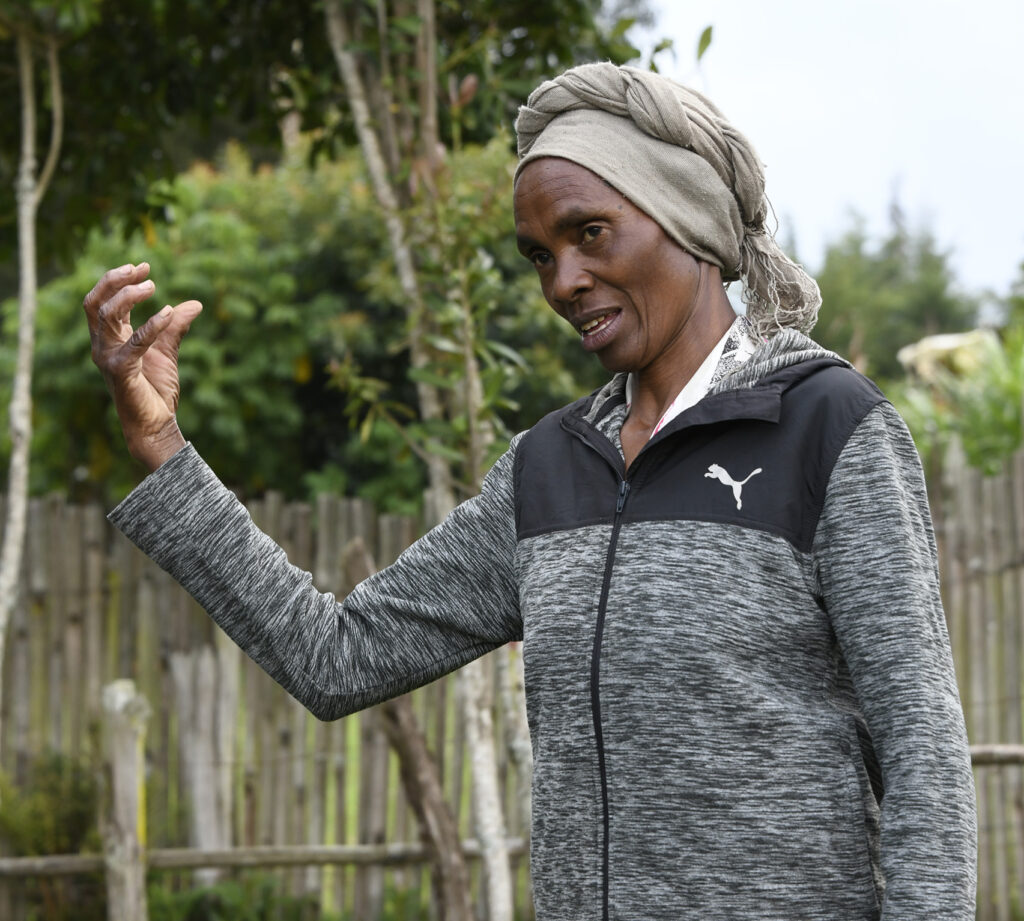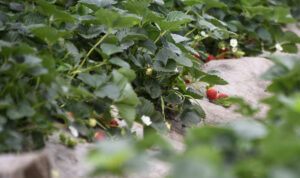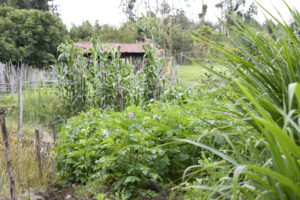Upper Tana, Kenya – Plan Vivo
August 4, 2023
The Upper Tana Nairobi Water Fund Trust (UTNWF) project operates in the watershed of Nairobi, Kenya. Years of deforestation for agriculture had resulted in land that was highly prone to erosion. The soil run off would then pollute the drinking water used by 95% of Nairobi’s residents and clog up the hydropower plant that provides over 65% of Kenya’s energy. But alongside these system effects, agricultural yields were falling, and food security was low.
This project works with around 170 000 small holder farmers to better manage their land in return for milestone-based rewards. After a visit from UTNWF, farmers are supported in making a Farm Specific Action Plan where the most impactful activates are discussed and can be implemented. Step one is typically to begin terracing sloped land and planting Napier grass along the segments. Terracing prevents erosion, keeping fertile soils in the farms and preventing silt entering downstream reservoirs. The roots of the Napier grass further stabilize the ground while the grass provides a high protein food source for livestock. After this, native tree species are planted to boost agricultural yield, support biodiversity, and unlock carbon payments; alternatively, food bearing trees such as avocado or tree tomato can be grown. All seedlings are provided for free by the project.

After completing some milestone activities, participating farmers are provided with water harvesting equipment. The system works by collecting rain in large ponds that can be used to irrigate crops in the dry season and as a space to keep fish. Year-round access to water allows security in future planning, as farmers are no longer dependent on rain patterns for their income or food security. This is especially important as Kenya is currently experiencing the worst drought in 40 years after six consecutive failed rainy seasons have brought a situation of severe hunger to 5.4 million people.
This project began in 2017, but due to interruptions caused by COVID 19, only made their first credit issuance in 2022. ZeroMission is very proud to be the first company to purchase from this project.
Madame Felice – diversified crops for higher yields and a more stable income
Madame Felice started working with the project in 2019 and over the past 4 years has managed her land with support from UTNWF in return for seedlings, a water pond and an irrigation system.
She is a single woman in her 60’s whose children have left home. She has a 1Ha plot of land that was previously used to grow cabbage. With capacity building and resource provision from the UTNWF, she has terraced her sloped land and begun growing avocados to sell in the local market, but her biggest cash crop is now strawberries.

After being supplied with a water harvesting system, she built a greenhouse and fitted a drip irrigation system to grow strawberries all year round. She now employs a few local people to harvest the ripe crop every other week to sell at the local market. She gets a good price for her produce as her neighbors are growing other crops, compared with the time before the project when most people were growing the same crop which made selling in the market more difficult and less profitable.
The income generated from this venture has increased her standard of living significantly. As we visited her property in May, 2023, we could see the new solid brick home sitting Infront of the wooden shack that is now inhabited by a few chickens and used as a storeroom. She said her extra income is now being used to support her child at university.


/https%3A%2F%2Fzeromission.se%2Fwp-content%2Fuploads%2F2024%2F08%2Fbiokol-low-1.webp)
/https%3A%2F%2Fzeromission.se%2Fwp-content%2Fuploads%2F2024%2F01%2FJJA3922-scaled-e1705582322558.jpeg)
/https%3A%2F%2Fzeromission.se%2Fwp-content%2Fuploads%2F2023%2F06%2FHH17636.jpeg)